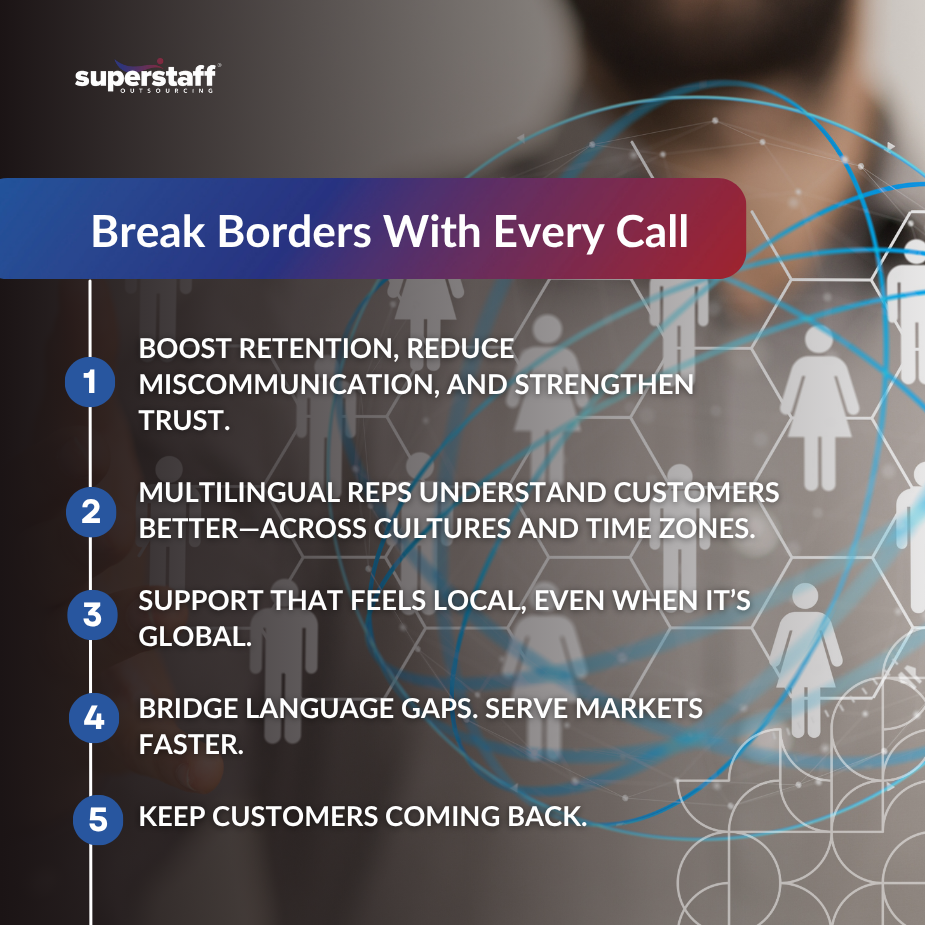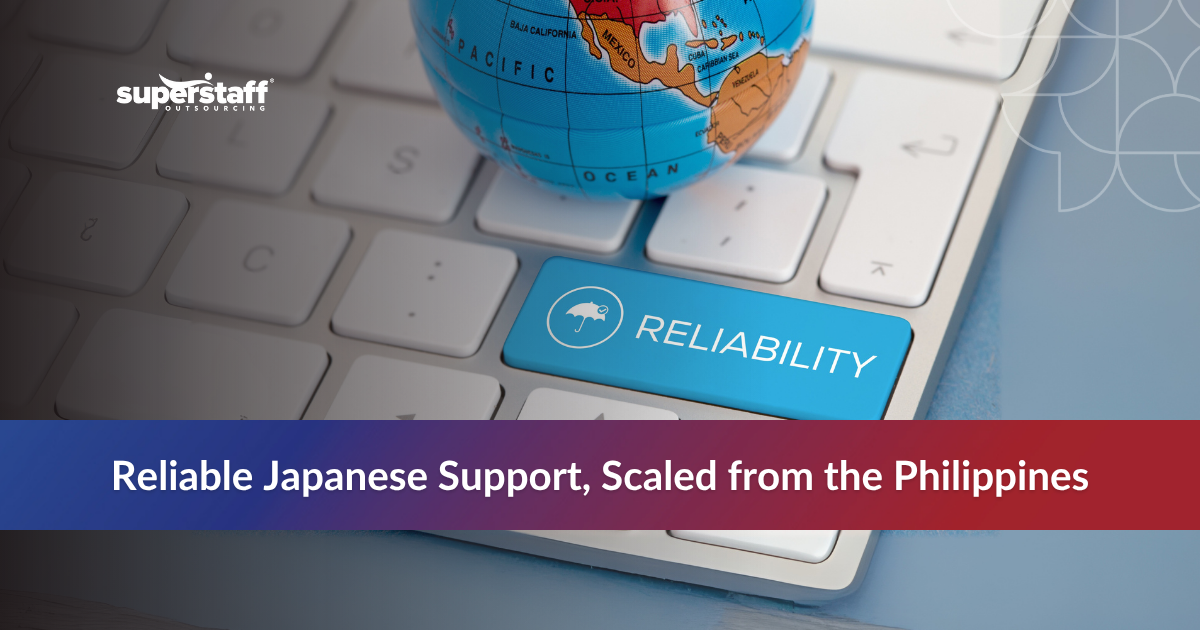
Language plays a key role in customer experience. For businesses serving global markets, language support is not just a nice-to-have; it is essential. As customers expect fast and accurate help in their native language, the multilingual customer service representative has become a vital part of modern support teams.
This role ensures smooth communication across borders, helping companies deliver consistent service to users around the world. Whether in e-commerce, technology, healthcare, or finance, multilingual support helps build trust, resolve issues quickly, and keep customers satisfied. Many companies now turn to nearshore solutions like outsourcing Colombia call center services to find experienced multilingual agents.
This article explores the responsibilities, benefits, and best practices related to hiring a multilingual customer service representative, and how this role contributes to a strong global support system.

Why Global Companies Are Investing in Multilingual Support
As businesses grow internationally, the need for multilingual support becomes more urgent. Customers expect localized help, and companies that meet this need gain a competitive edge.
1. Customers Prefer Service in Their Native Language
When customers face a problem, they want to explain it clearly. A multilingual customer service representative can respond in the customer’s preferred language, leading to fewer misunderstandings and faster resolutions.
2. Businesses Operate in Multiple Markets
Global brands often serve customers across North America, Europe, Asia, and Latin America. Having multilingual representatives allows them to manage service across all regions without building separate local teams.
3. Cost of Miscommunication Is High
Language barriers can lead to incorrect orders, poor reviews, and lost revenue. Clear communication from the start helps prevent these issues.
4. Real-Time Support Matters
Customers expect fast responses. A representative who speaks their language can assist without delay or the need for translation tools.
5. Multilingual Support Strengthens Brand Trust
When businesses speak their customers’ language, it shows effort and respect. This improves customer satisfaction and long-term loyalty.
Responsibilities and Skills of a Multilingual Support Agent
Many people ask, what is multilingual support and what exactly does the job involve? A multilingual customer service representative does more than translate words. The role requires strong communication, cultural awareness, and service consistency.
1. Communicating Clearly Across Languages
The representative answers questions, solves problems, and gives product or service information in more than one language. Accuracy and clarity are key, no matter the platform, phone, chat, or email.
2. Handling Multiple Communication Channels
Modern support includes more than just calls. A multilingual agent must manage live chat, support tickets, and social media messages while maintaining quality in every interaction.
3. Understanding Cultural Differences
Each language comes with its own communication style. A good representative adapts their tone, pace, and approach to suit the customer’s culture.
4. Following Internal Processes
Support agents work with CRM tools, ticketing systems, and knowledge bases. They must follow service workflows and document each interaction correctly.
5. Solving Problems Efficiently
Strong listening and problem-solving skills are essential. The agent must understand the issue, provide clear answers, and know when to escalate complex cases.
Industries That Benefit from Multilingual Support
Multilingual representatives bring value to any industry where global customer interaction is common. These professionals make service faster, smoother, and more personalized.
1. E-Commerce
Online shoppers often come from different countries. A multilingual customer service representative helps with product questions, returns, and delivery updates in the shopper’s language.
2. Technology and SaaS
Tech companies rely on customer support to explain products and resolve technical issues. Multilingual agents help reduce confusion and ensure users understand how to use the software.
3. Healthcare
Healthcare providers and insurers need to communicate clearly with patients and members. Multilingual support helps explain medical services, coverage, and scheduling.
4. Travel and Hospitality
Hotels, airlines, and booking platforms often deal with international customers. Language support improves the guest experience from booking to checkout.
5. Telecommunications
Phone and internet companies serve customers from many backgrounds. Multilingual support helps resolve billing questions and service problems quickly.
Why Many Companies Choose Colombia for Multilingual Support
Colombia has become a growing hub for outsourced customer service. Many businesses look to the region when expanding their global support teams. Outsourcing Colombia call center solutions offers a mix of cost, talent, and time zone advantages.
1. Strong Language Skills
Colombia has a large pool of bilingual and multilingual talent. Many representatives are fluent in English, Spanish, Portuguese, and other global languages.
2. Cultural Compatibility
Colombian professionals are known for their strong communication skills and adaptability. This makes them a good fit for companies based in North America and Europe.
3. Nearshore Time Zone
Colombia shares a similar time zone with U.S. clients. This allows for real-time collaboration and faster response times.
4. Competitive Labor Costs
Compared to hiring in the U.S. or Canada, outsourcing to Colombia is more affordable. Companies can scale teams without raising budgets.
5. Reliable Infrastructure
Colombia has modern business hubs in cities like Bogotá and Medellín. These locations offer strong internet, secure facilities, and a steady supply of skilled workers.
Best Practices When Managing Multilingual Teams
To get the best results from multilingual support, companies should follow structured processes and set clear expectations.
1. Set Clear Language Goals
Identify which languages are needed based on the customer base. Then hire or outsource agents who match those needs.
2. Use Consistent Tools and Workflows
All agents should use the same systems, scripts, and response guidelines. This keeps service consistent across languages.
3. Train for Language and Service Quality
Even fluent speakers need training. Regular updates on products, tools, and service practices help keep quality high.
4. Track Performance by Language
Monitor satisfaction, resolution times, and other metrics by language group. Use the data to identify areas for improvement.
5. Encourage Feedback and Growth
Give multilingual agents a chance to grow their skills. This increases job satisfaction and reduces turnover.
Global Support Starts with the Right Team
A strong global support system begins with a skilled multilingual customer service representative. These professionals allow businesses to connect with customers across regions, helping solve issues faster and creating a more personalized experience.
As global demand grows, companies turn to trusted partners like SuperStaff. With experienced multilingual teams based in Colombia, SuperStaff offers reliable support across voice, chat, and digital platforms. Whether your company needs help scaling support or entering new markets, SuperStaff can provide a flexible solution that fits your goals.
Strengthen your support operations today. Partner with SuperStaff and access multilingual talent that brings results.






